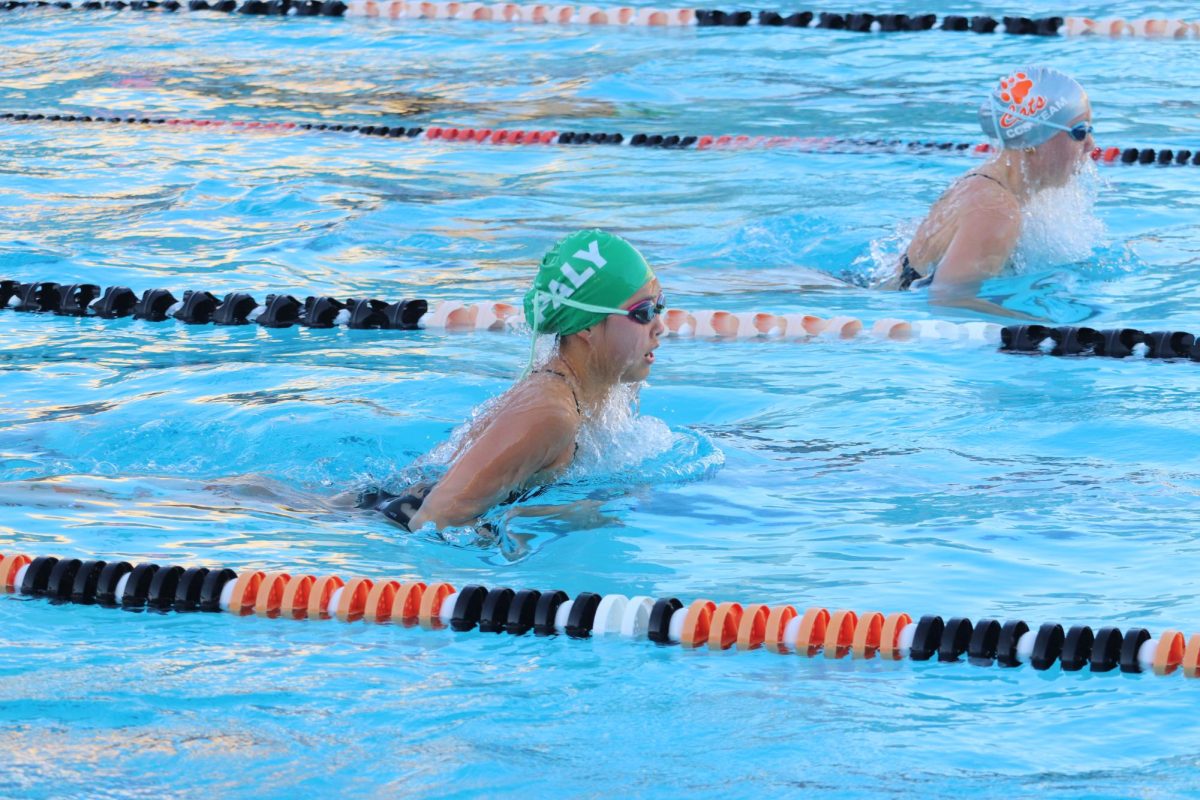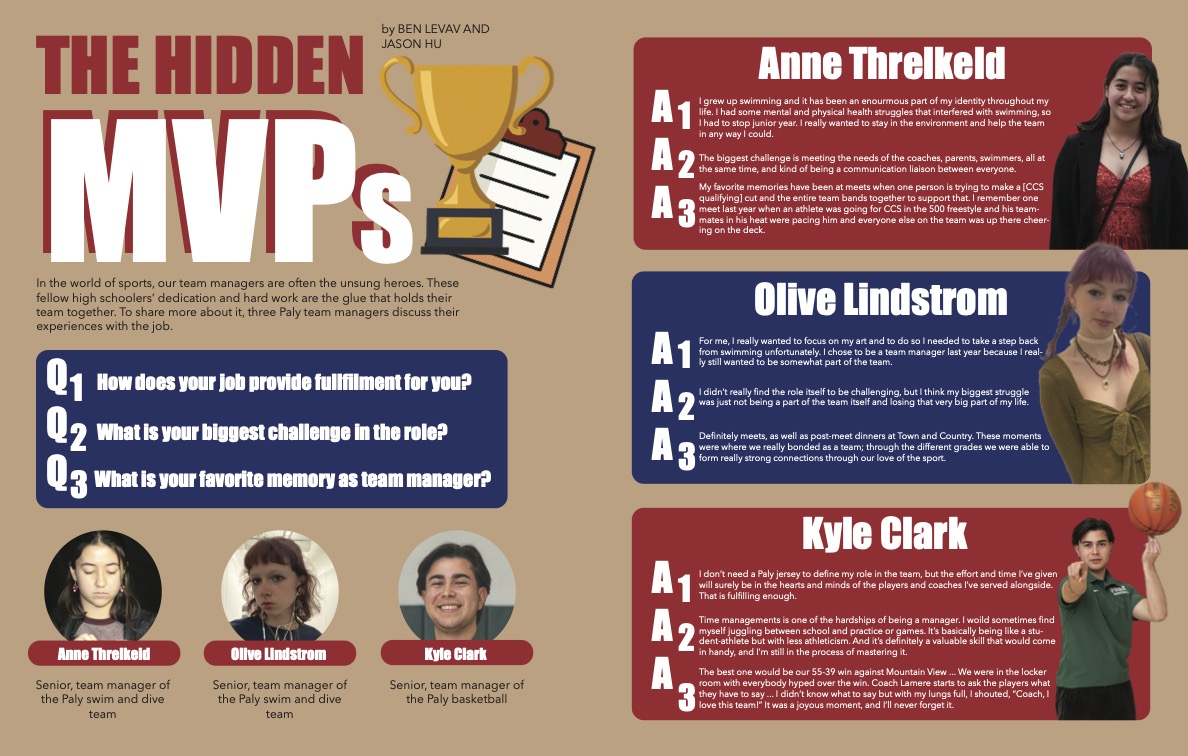A View from the Teachers
October 3, 2016
In this day and age, there are certain values placed on varying skills; there’s no denying that today’s society puts a stronger emphasis on academics and job opportunities. For example, programming is a higher priority academically than fashion. Is the same true regarding the comparison between overall academics and sports among those most directly promoting education: teachers?
When asked, most student-athletes agree that excelling at a sport would equate in value to excelling in school; though definitions of excellence vary, the general consensus among those that must balance sports and academics is that each is equally important.
It may seem obvious that a student hoping to get recruited or planning to eventually make their living off of their sport may prioritize their practice over homework or hold their athletics to a higher esteem than their general performance in school. A reasonable assumption based off of this would be that educators–those likely most concerned with the scholastic successes of themselves and their students–would have a similar tendency and inversely value school over sports. Teachers at Paly, however, may challenge this conclusion; among those asked, not a single teacher overtly stated that academics are more important or should be prioritized over extra-curricular activities.
“There are going to be some people where the sports come easy, and some people where the academics come easy… it’s just they way we’re built,” Athletic director and former math teacher Kathi Bowers said. She believes that the level of difficulty of reaching academic versus athletic “excellence” varies greatly between people, and not only because of physical attributes. According to Bowers, “It goes back to what you value, what you enjoy, what you’re passionate about and that you put your best effort into doing the best you can at whatever you choose to do.”
Similarly, English teacher Craig Bark, who participated in bicycle motocross (BMX) when he was younger, says that the two are equally challenging. While there are generally successful students and athletes that do not deliberately struggle in either category,
“In that top group of academics, there are very few [students] who are just brilliant at everything,” but at the same time, “there are millions of athletes and few elite ones.” Bark said.
Some teachers even go as far as designating sports achievements as more difficult to attain. AP Psychology teacher Christopher Farina and avid ultimate frisbee competitor says that to be successful in either field is a nature-nurture issue. Similar to Bowers, he recognizes that one will have a natural physical or intellectual base to work with, as well as the advice and feedback from others that can help build skills applicable to both areas of expertise.
That being said, Farina believes that “it’s going to be very, very difficult to achieve excellence in sports, because most of them are going to be competitive… It’s a much more select group than what we would consider to be academic intelligence, which has a much wider array of things that you can do and that our society values.”
English teacher Melissa Laptalo describes sports-related success as “much more visually overt”, which she argues could make “the sports realm harder… it’s more black and white about what success would look like, if you’re measuring success by winning or breaking personal records.” Where rankings among athletes and teams can be measured numerically, school rankings more heavily depend on the grading system, which Laptalo points out “can be a little bit more behind the scenes, and maybe even a little bit more false… people can misrepresent how they’re doing.”
Consistently, teachers have shown not only their acknowledgement of the commitment and the hard work put into sports that are so prevalent among students, but seem to consider athletic achievements as harder to achieve than those of academic nature.
The teachers also collectively agree that sports offer valuable components that otherwise may not have been procured in a school environment. If one considers primitive human activity, society’s priorities are completely different.
“You’re [going to] have more of a balance between what we consider academic intelligence, like knowing which kinds of things grow well, as well as having the physical capacity to to hunt, and work with a team,” Farina said. “Now in 2016 society, a very intellectually-driven society… does value [academic intelligence] a lot more.”
In contrast, Laptalo highlights the contemporary social benefits that team sports offer, recognizing it as one of the biggest benefits in her experience as a member of her sports teams in middle and high school; another one being the gained skills applicable to future professional situations.
“I’d think some of the student athletes are better prepared for real life… where some of the academic [skills are] transferable, being able to work on a team… being able to take instruction, and being able to have a growing mindset… that resilience and that dedication is in any profession, what people want their workers to have.”
Bark also talked about student athletes and stated, “At Paly, I find most of the ones who are the very very successful athletes are also very successful student.” These teachers see eye to eye on the idea that student athletes are the ones who will truly succeed and are prepared for the real world because they have a good sense of athletic and academic intelligence. Several of the teachers that we interviewed did not always put education first, in fact, their sport may have taken their focus away from school at times.
It is a virtually non debated issue whether or not sports require certain skills; despite their stress on the importance of academics, teachers have shown not only their acceptance of student athletes, but also have exhibited encouragement of pursuing their passion, scholastic or otherwise. They unanimously want students to find something that they are passionate about, and to make sure students put in their best effort at whatever they choose. No matter the focus, to be successful requires a motivation, most ideally sparked by genuine interest and excitement for the activity. The most talented in either area of emphasis will likely be because of a passiown that drives a higher level of commitment.
Some may assume, especially student athletes, that teachers naturally expect their students to prioritize their school work over any extracurriculars. Across the board, however, devotion to your activity–whatever it may be–is of higher importance both to your own life and to that of our teachers.





